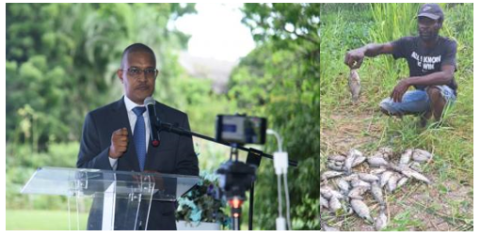

Dr. André Coy, a senior lecturer at The University of the West Indies, emphasized the need for improved monitoring of the Rio Cobre in St Catherine, plagued by repeated fish kill events due to water pollution. Speaking at Science for Today public lecture series, dubbed e ‘Dirty Water, Dead Fish and Distressed Communities: What do we do? hosted by The UWI’s Faculty of Science and Technology he introduced the RealTMS, a technology-driven waterway monitoring system. The RealTMS includes a network of sensors measuring environmental parameters such as pH, temperature, turbidity, conductivity, and dissolved oxygen. The real-time data is transmitted to a cloud-based system accessible via the internet, allowing swift response to pollution events. Coy highlighted the system's successful use by a private company and urged collaboration with the private sector and NGOs to implement such solutions. NEPA, the National Environment and Planning Agency, expressed interest in electronic early warning systems and collaboration with industrial facilities to minimize discharges. The RealTMS is not self-powered, requiring maintenance every 1-3 months. Future plans involve a mobile application, non-pollution indicating sensors, and full automation. Coy encouraged partnerships to address water pollution effectively.
Photo caption (L-R): Dr André Coy, senior lecturer in The University of the West Indies’ (UWI) Department of Physics; Rio Cobre fisherman Christopher Barrett shows dead fish taken from the river in July 2023.
Published on 05 Mar, 2024